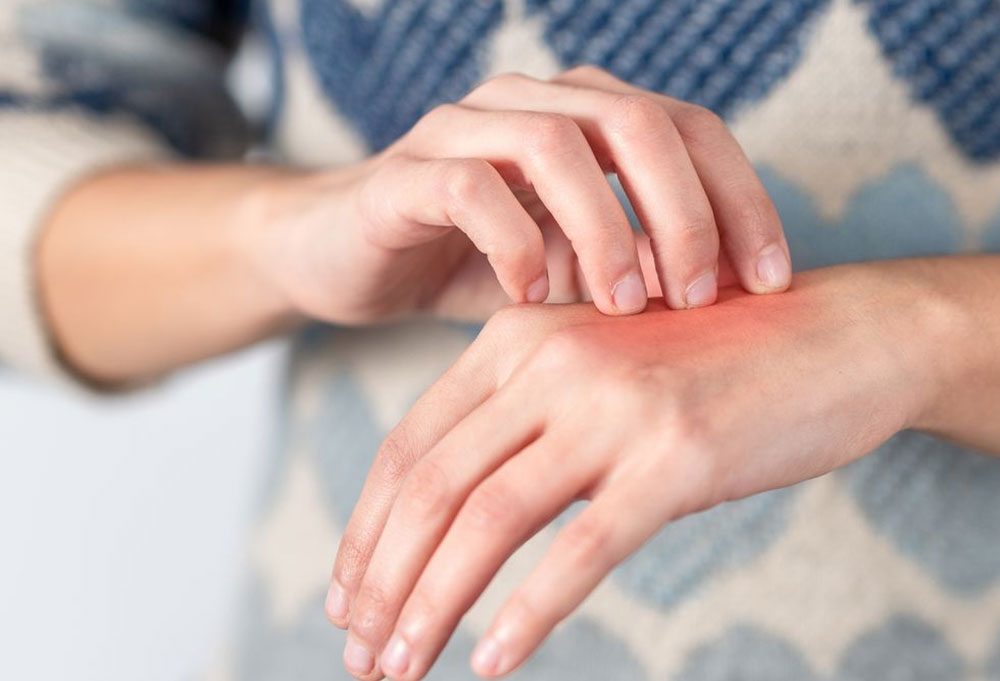Some things in life are way beyond your control.
For example, you cannot choose your parents or family, including the genes you inherit from them. You may acquire some great features from them, but at the same time, you can get “bad” ones.
Having eczema is one of the “bad” things that you may inherit from your family’s bloodline, and it can become such a hassle when this inflammatory skin condition attacks. Genetics isn’t the only factor that causes eczema, though. It can also occur because of environmental conditions and, in most cases, the food that you consume.
You may not have control over these bad genes, but you can still do something to prevent this problem.
What is Eczema?
Eczema, also called dermatitis, is an inflammatory skin condition that triggers flare-ups. It may cause skin dryness, irritation, itching and rashes. It is an umbrella term surrounding numerous inflammatory skin conditions that can cause the skin to crust and bleed in the wrists, back of knees, and hands because of severe dryness.
There is no known cure for eczema up to this day. Though there are quite a number of over-the-counter creams and medications that may help in reducing inflammations on the skin, there are also foods that may be a factor in triggering eczema flare-ups. There are also anti-inflammatory foods to help relieve them.
People who have eczema may also be diagnosed with food allergies, so doctors may recommend avoiding certain foods known to make eczema worse. If people diagnosed with eczema eat certain foods, their bodies might trigger the release of immune system compounds such as T-cells and Immunoglobulin that causes inflammation.
Foods to Avoid if You Have Eczema
To determine what foods cause eczema reactions, doctors will often recommend the elimination diet. This kind of diet aims to know what foods can cause eczema in a specific person by avoiding some of the most common foods that may cause an inflammatory skin condition.
Some of the common food that may trigger eczema flare-ups include:
- Foods containing preservatives and artificial ingredients
They can exacerbate the symptoms of eczema. These foods may include high trans fats such as margarine, processed foods, french fries, junk foods, and fast foods. Also, foods with high saturated fats found in red meats, butter, and poultry skin increase inflammation that will most likely worsen eczema symptoms.
- Foods that are high in sugar
This may also trigger inflammation and eczema flare-ups because high glucose (hyperglycemia) can increase inflammation. Foods like cakes, sodas, coffee drinks, smoothies, doughnuts, ice cream, and some fast food items. The high levels of sugar in these foods can cause the insulin in your body to spike up which, in turn, will result in a significant increase in inflammation.
- Foods containing nickel
They are also one of the most common causes of allergy, eczema flare-ups, and inflamed red skin and rashes.
There are some cases when a person is diagnosed with dyshidrotic eczema. It is a type of eczema that produces tiny blisters on the hand and feet, which will also worsen the symptoms if too much nickel is consumed.
Nickel is the main ingredient to encourage symptoms of dyshidrotic eczema. Foods that contain a significant amount of nickel in them such as whole wheat and grains, oat, cocoa, rye, baking powder, soy products, canned foods, and dried fruits should be avoided.
Foods to Eat if You Have Eczema
- Foods that are high in probiotics
They are foods that contain good bacteria that help achieve good gut health. If people with eczema were to consume probiotics, this will make their immune systems become stronger. Foods like yogurt, kefir, sauerkraut, miso soup, pickles, and kombucha. Many doctors conducting numerous tests like eczema clinical trials propose that probiotics are one of the most effective treatments against eczema. Since probiotics strengthen the immune system, they believe that by taking them people can combat the faulty immune response of the body that causes eczema.
- Fatty Fish
Fish such as salmon, herring, mackerel, sardines, and albacore tuna are examples of these. These fish are rich in omega-3 fatty acids which have anti-inflammatory properties to combat eczema. Omega-3 fatty acid reduces the production of molecules and substances linked to inflammation, but studies also find that it can reduce the risk of having many autoimmune diseases.
- Quercetin-rich fruits and vegetables
These are foods that have high inflammation-fighting flavonoids. Flavonoids are a bunch of plant-based compounds that are beneficial for human health. These compounds are known most for their strong antioxidant properties and anti-inflammatory effects that may aid your body with allergies. Fruits and vegetables such as apples, cherries, blueberries, peaches, grapes, broccoli, spinach, kale, lettuce, and tomatoes.
Takeaway
In conclusion, we may not have a cure ready for eczema, but with proper treatment and prevention, you can reduce flare-ups and manage the symptoms that may arise from eczema.
This inflammatory skin condition varies from person to person, its symptoms can be triggered by different factors. So to control these symptoms and avoid sudden flare-ups, follow the eczema diet that you have procured from your research or doctors. It will take some time in finding the best food to fight your eczema. It’s a process of trial and error, but eventually, you will be able to identify what foods you should eat and avoid to claim the best results.
